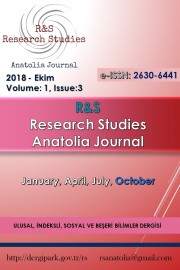TÜRKİYE EKONOMİSİNDE 2001 SONRASI TASARRUF VE YATIRIM AÇIĞI ÜZERİNE BİR ARAŞTIRMA
A RESEARCH OF AFTER THE 2001 SAVINGS AND INVESTMENT DEFICIT IN TURKEY'S ECONOMY
Author(s): Üyesi Hüseyin TezerSubject(s): National Economy, Economic policy, Economic development, Financial Markets, Fiscal Politics / Budgeting
Published by: Arif YILDIZ
Keywords: Macroeconomic; Monetary Policy; Economic Policy; Central Bank; Savings-Investment Credits; Reel Interest; Nominal Interest;
Summary/Abstract: The savings-investment imbalances seen in developing country economies have an important place both in the economic growth process and in the current account deficit problem. Therefore, the sources of inadequate savings in developing countries are among the most important reasons why these countries can not realize their development efforts. In the same category, the Turkish economy has a low national income and disposable income, a high ratio of young population, high technology imports, and a lack of technology, negatively affecting the saving tendency. Therefore, the low saving tendency leads to inadequate capital accumulation and leads to the inadequacy of domestic demand for the funds needed for investments. This leads to the fact that these funds needed for investments are met from external sources, and these outsourcing inflows sometimes cause problems of balance of payments in the country's economy and often lead to economic crises. Due to the inadequacy of domestic savings, the realization of investments based on foreign savings causes pressure on the external debt burden of the country's economy and thus the level of economic vulnerability increases.
Journal: R&S - Research Studies Anatolia Journal
- Issue Year: 1/2018
- Issue No: 3
- Page Range: 490-502
- Page Count: 13
- Language: Turkish

